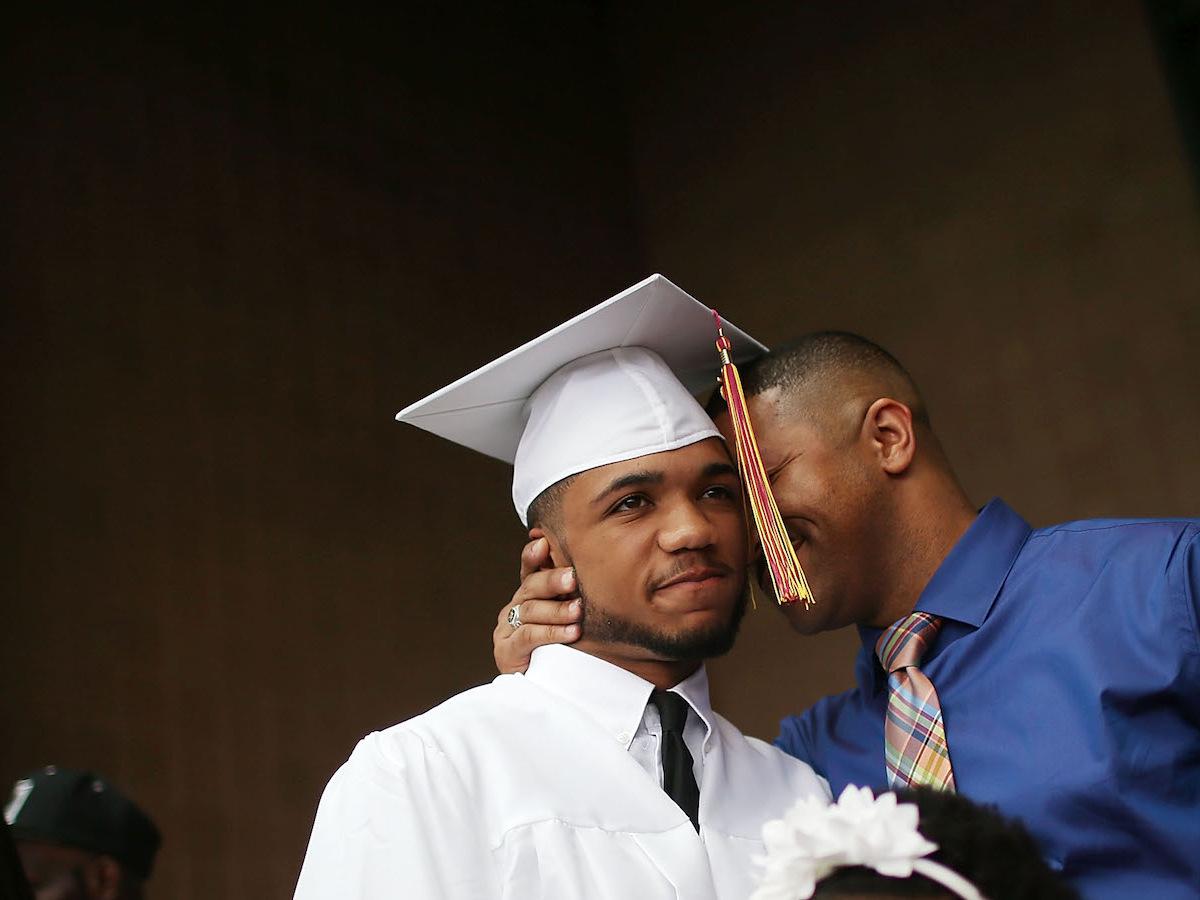- Student loans can leave young people in thousands of dollars worth of debt, with the average borrower graduating with over $37,000 to pay back.
- Despite the costs, student loans are a worthwhile investment if having that education will lead to a good career and income down the road.
- I took out student loans, and it was the best decision I made – here’s why.
Every time I read about the soul-crushing debt of student loans, I feel a small twinge in the back of my neck. On one hand, I know how badly it feels to be trapped under a mountain of debt – I graduated with close to $70,000 in student loans.
On the other hand, I don’t regret taking out loans to fund my education. It’s not like I don’t understand how much debt I’m in – I reported on student loans and higher education for over a year for work. It’s just that I think of those loans as a necessary investment in myself and my career.
I’m a first-generation college student, and my entire life, until I graduated from high school, was focused on getting into college. I had an idea in my head of how it would play out when I got there: I would read (and understand) novels by Dostoevsky and Tolstoy, have philosophical debates with my group of new friends, and contemplate the merits of a two-party political system.
Most of all, I wanted a degree. It was the only thing I could see as the difference between having to work an endless series of part-time retail jobs in a small town (which wasn't something I wanted) and having a successful career - even if I couldn't yet see what that would look like. College was the golden ticket to a life where I had the freedom to choose how I lived.
I worried about the costs
It didn't help that I grew up with a somewhat negative relationship with money. My dad worked multiple jobs while I was a kid, and I could feel the ripples of stress that coursed through our house when money was in short supply. So, knowing from countless hours of research that four years in college could cost upwards of $200,000, I stressed about paying for it all throughout high school.
As time went on, and I saw all the hidden expenses associated with going to college, I also worried about paying for flights home, food outside the dining hall, occasional nights out with friends, and the opportunities that the rich kids never had to think twice about, like getting to a job interview downtown and looking the part.
Taking out student loans didn't seem like a choice to me - It was imperative, a fact of life. I always knew I'd have to make sacrifices and work hard for my education. And I thought the debt would ultimately be justified.
Excluding my first semester, I always worked at least two part-time jobs alongside a full course load to be able to afford my new life in Boston. Of course, my close-to-minimum-wage jobs couldn't cover everything. So I ended up racking up a few thousand dollars in credit card debt over those four years, in addition to my loans. But I was just so grateful to be there.
College allowed me to build my career
Going to college gave me the space I needed to figure out what I wanted to do with my life, to get internships, and to make connections that enabled me to get paying gigs later on.
I may not have ever put my "Intro to Archaeology" knowledge to practical use, but I was able to eliminate "archaeologist/Indiana Jones" from my list of dream careers. And I value the fact that I was able to make a list that had room for careers as audacious as that.
If I hadn't have gone to college, I may have eventually been able to figure out that I wanted to be a writer. But I don't think I'd be where I am now, or even close to it.
That doesn't mean my career is going perfectly, or that my student loan payments have gone off without a hitch. I got laid off from my first post-grad job a week before last Thanksgiving, and it's taken almost six months to gain any real traction as a freelance journalist. But I work in an industry where that kind of instability is common. And after covering student loans as a journalist, I'm fortunate to know how to navigate my debt with confidence, even when money is tight.
Student loans can be an oppressive force, one that can prevent you from doing what you want to do and living how you want to live. And predicting the amount of debt you'll graduate with can be a difficult task. (Based on my freshman year aid package, I thought I'd graduate with about $35,000 in loans and ended up with nearly double that.) But I can't say I agree with people who insist it's better to skip college altogether than to graduate with debt.
I don't regret my student loans. And I don't think it's fair to tell people like me, those who would be the first in their family to go to college and don't come from money, that this opportunity - which has long been touted as a surefire path to upward mobility - isn't an good option.

